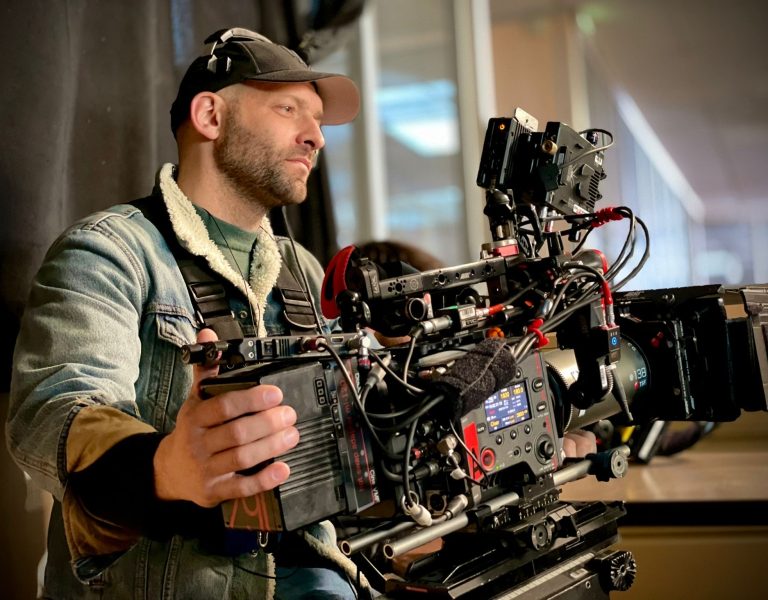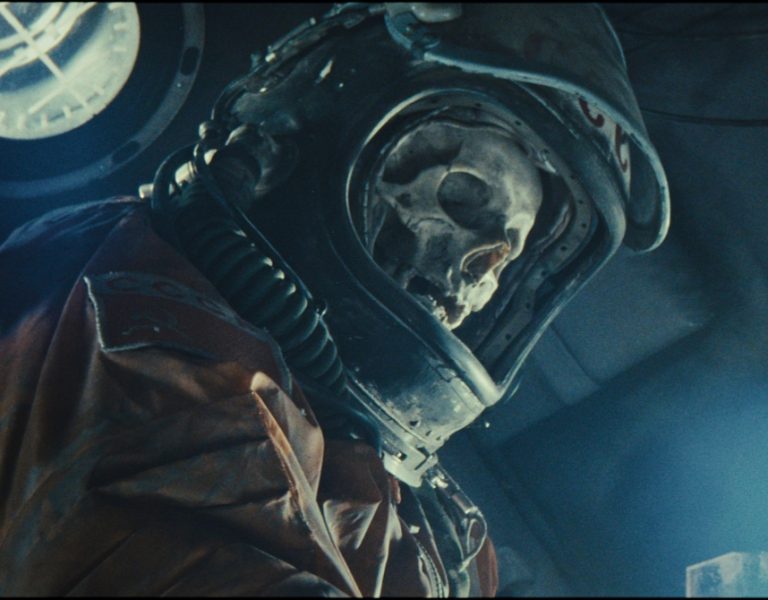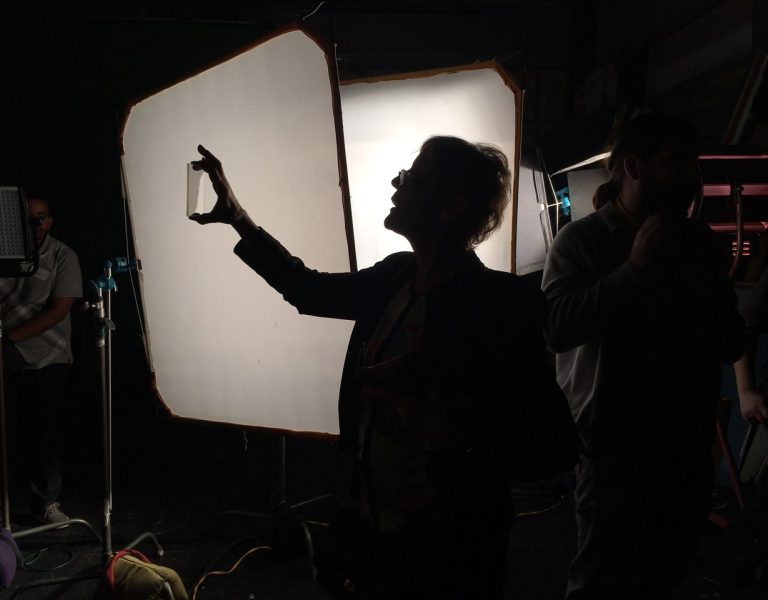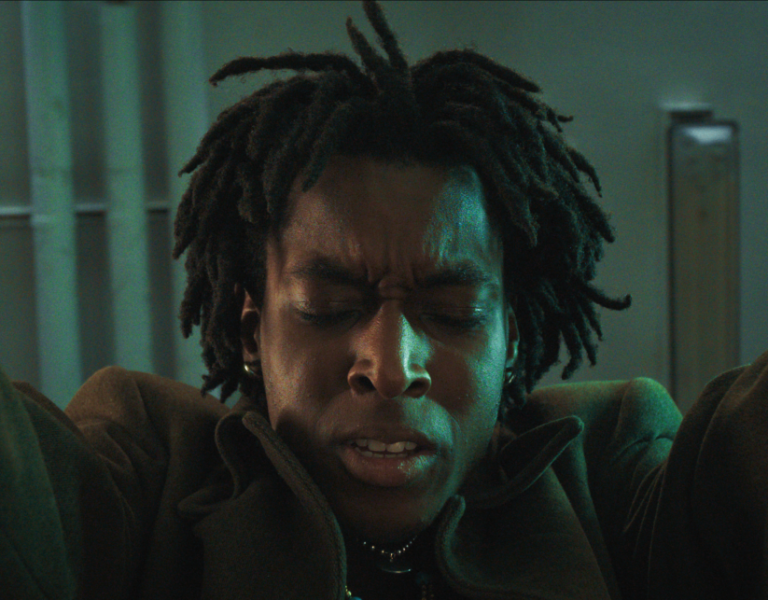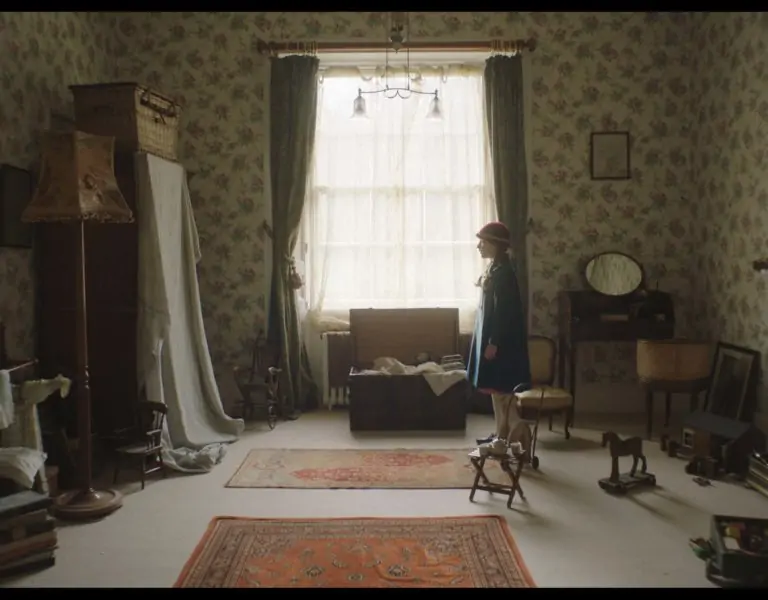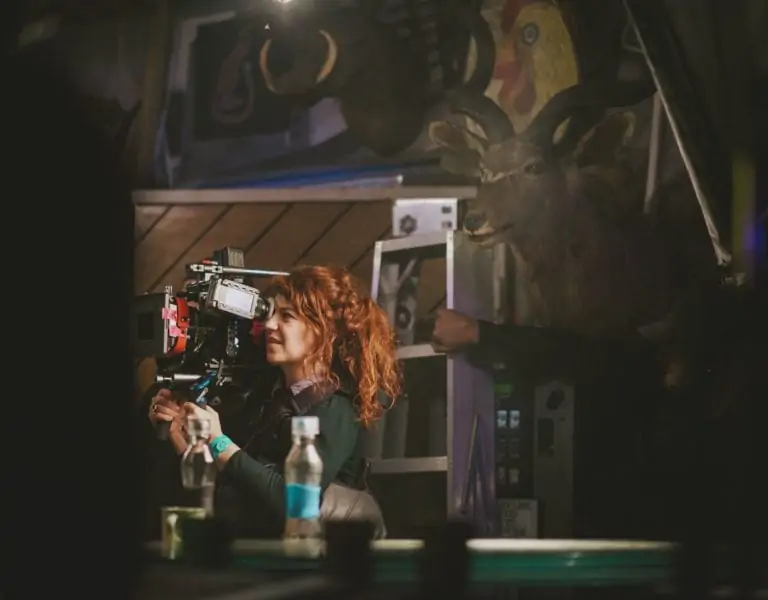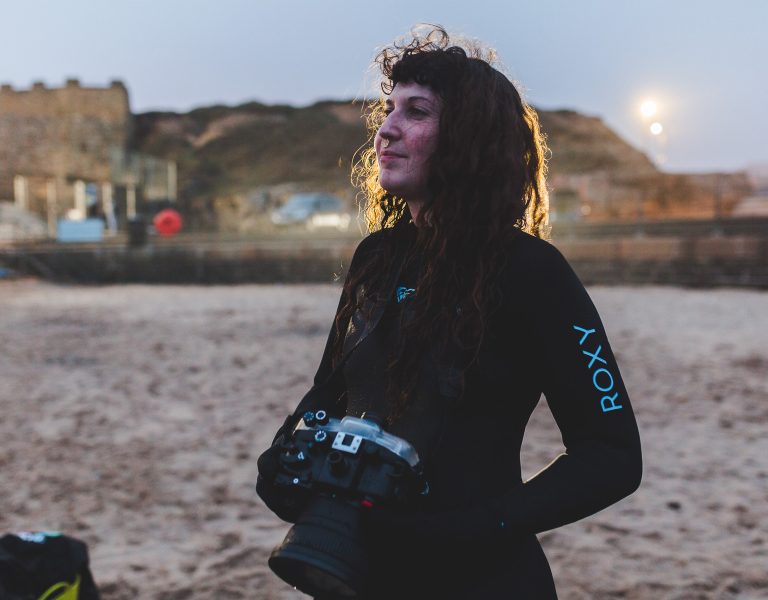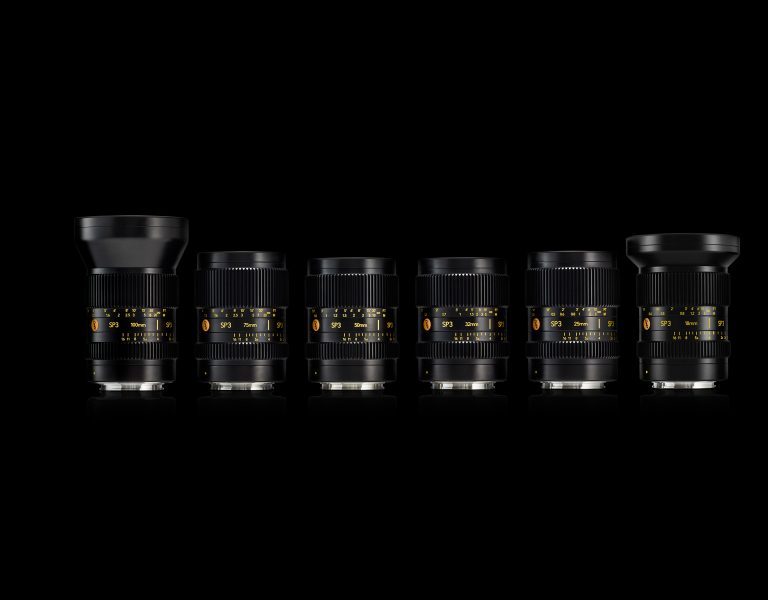Greenpeace film shot by Sarah Cunningham subverts iconic Dove ad
Sep 16, 2024
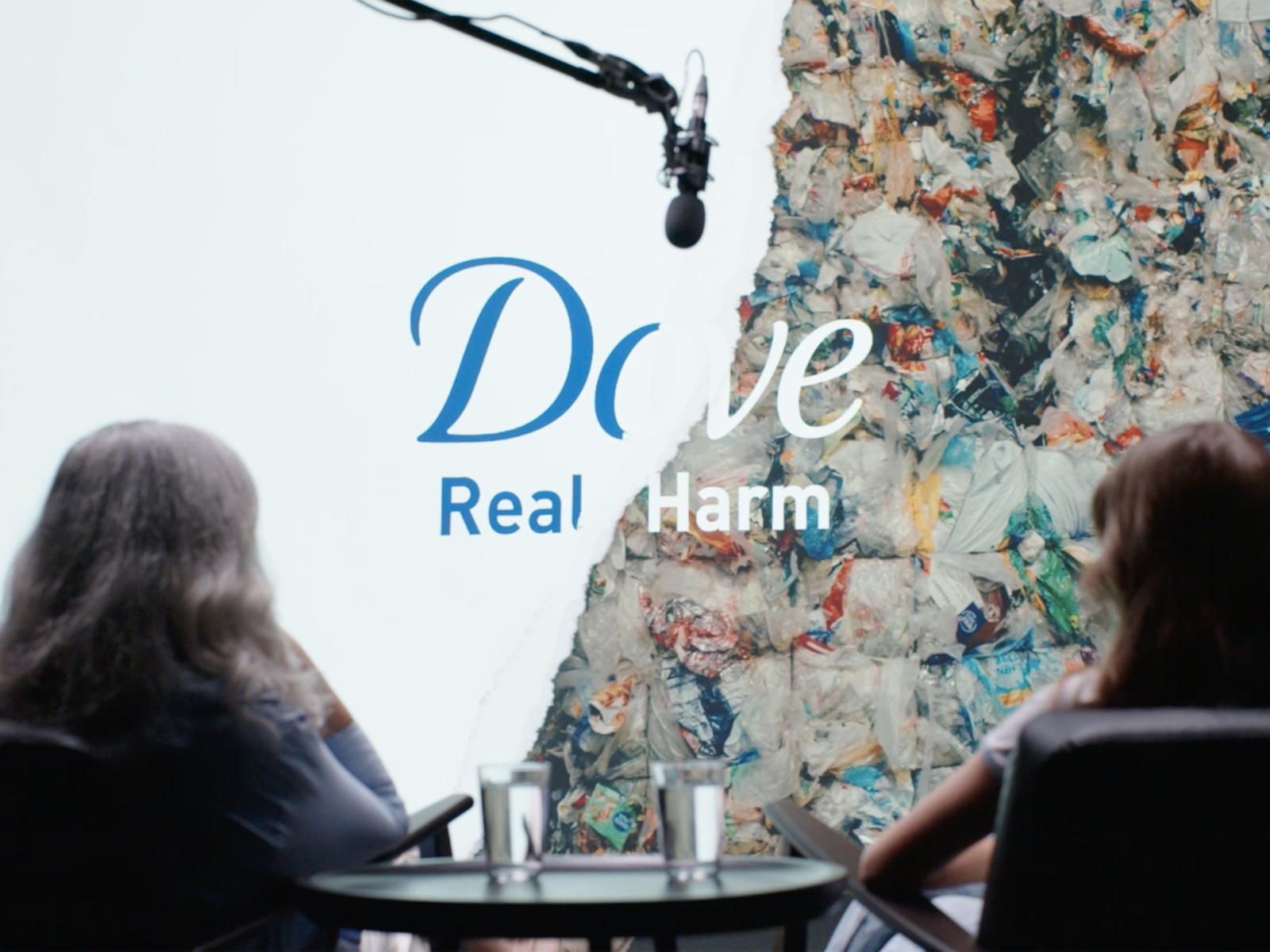
A new film released by Greenpeace UK has taken aim at beauty brand Dove.
The film offers a devastating rebuke to the hypocrisy of the mega-brand and the harmful impacts of the plastic pollution pumped out by the soap-maker and its parent company Unilever.
Directed by BAFTA-nominated filmmaker Alice Russell (If The Streets Were On Fire), the hard-hitting film is a subversion of the acclaimed 2022 Ogilvy-produced Dove video “Toxic Influence”. Mirroring the original, it features pairs of mothers and daughters in conversation. The pairs begin by discussing their positive reactions to Dove’s marketing, before the true scale of the brand’s plastic waste and its devastating impacts are revealed – bringing with it strong feelings of shock and revulsion. Russell was joined by Anna Wells as producer (Wasteminster) and Sarah Cunningham as director of photography.
It comes a week after Greenpeace activists shut down the entrances to Unilever’s HQ in Central London on Thursday 5 September, locking themselves onto barricades made to look like giant Dove products. Climbers unfurled a giant banner across the building’s facade bearing the message ‘Real Beauty isn’t this toxic’ and calling on Dove to ditch plastic.
The release coincides with the 20th Anniversary of Dove’s Iconic “Real Beauty” campaign, which launched in September 2004. The campaign has positioned the brand as one with a social and environmental ‘purpose’. But Dove, and its parent company Unilever, remain one of the largest plastic polluters globally.
A Greenpeace International report released late last year showed that Dove’s parent company Unilever sells the equivalent of 1,700 super-polluting plastic sachets per second. An estimated 6.4 billion sachets were produced by Dove alone in 2022, making up over 10% of Unilever’s total sachets sales. A field investigation by Greenpeace South East Asia and Greenpeace UK revealed shocking images of Dove’s sachet waste polluting beaches and waterways in the Philippines and Indonesia.
Plastic sachets are particularly harmful to the environment, with a senior figure at Unilever describing the packaging as “evil because you cannot recycle it”. They are known to exacerbate devastating flooding when they enter the environment and jam local waste systems and waterways.
Greenpeace is calling on Dove and Unilever to phase-out single-use plastic from its operations and transition to reuse in the next 10 years, starting with the worst offenders: plastic sachets. Greenpeace is also calling on the company to advocate for this same level of ambition at the next round of negotiations on a UN Global Plastics Treaty when it attends as co-chair of the Business Coalition in November.
Anna Diski, campaigner at Greenpeace UK said: “This powerful film shows the genuine human reaction to the hypocrisy which seeps through Dove and its slick marketing. It’s a reaction which should worry the brand – the women and girls they claim to champion won’t put up with it and want Dove to change.
“They know there’s no Real Beauty in the real harm caused by Dove’s plastic pollution. They can’t keep flooding the world with unimaginable amounts of harmful plastic. That’s why Dove must stop selling plastic sachets now and commit to phasing out single-use plastic within a decade.”
For cinematographer Sarah Cunningham, it was important to be part of the project as “social responsibility is’ in’ and sells products”. She elaborates: “We all want to do the right thing. However, the abyss between a company’s advertised ‘ethics’ and their actions is often staggering. Dove’s campaigns have been instrumental in making the beauty industry a more inclusive and kinder place.
“Dove has so much power, especially as part of Unilever, to enact real change to their own polluting practices and lead the way placing pressure on other brands to follow suit. It’s essential to hold them to account to their own standards of protecting women and girls everywhere.”
They were tasked with holding up a mirror to Dove’s own campaign about the toxicity of social media for young women, emulating their set up, framing and lighting, all the while turning the tables on the brand itself. “The Greenpeace campaign addresses Dove’s horrific record on plastic pollution, which is physically toxic to women and girls (and every other living thing!) all over the planet,” says the cinematographer.
Cunningham’s collaboration with the director began by watching Dove’s campaign over and over, deconstructing what they had done and why and what effect it had on. “We talked about the realities of Dove’s record on pollution, and the reactions that Alice felt were key to catch from certain contributors, so that as operator, I would be able to be as responsive to the key moments of interview as possible,” she says.
As they needed to match Dove’s campaign almost frame for frame (albeit on a much tighter budget), they analysed their film with forensic detail. “We found a studio with dark walls and similar architectural elements, we adopted the same angle of soft overhead lighting, and our two cameras (one for two shots, one for close ups, both on zooms) were, with the help of humble sliders, always on the move,” says Cunningham. “By talking Dove’s language, Greenpeace underlines the brand’s hypocrisy, and by riding on the wave of their publicity surrounding their Real Beauty 20th anniversary, ensures a much greater online reach.”

